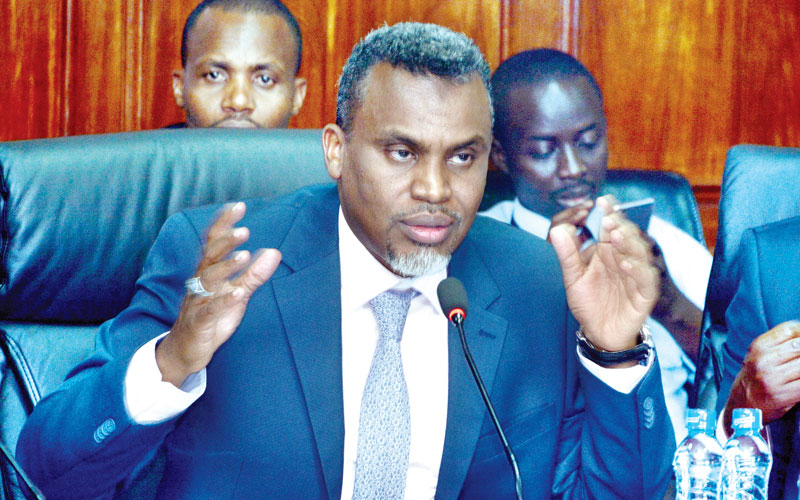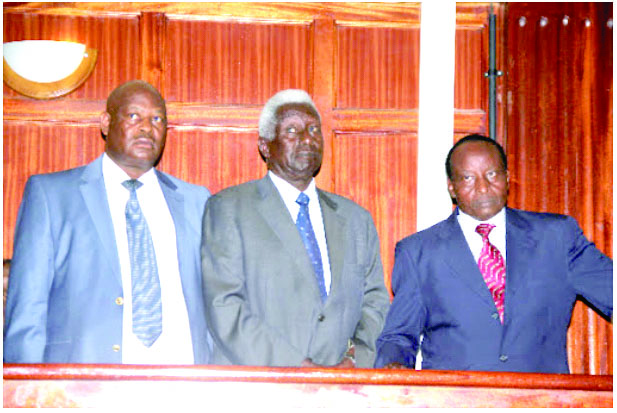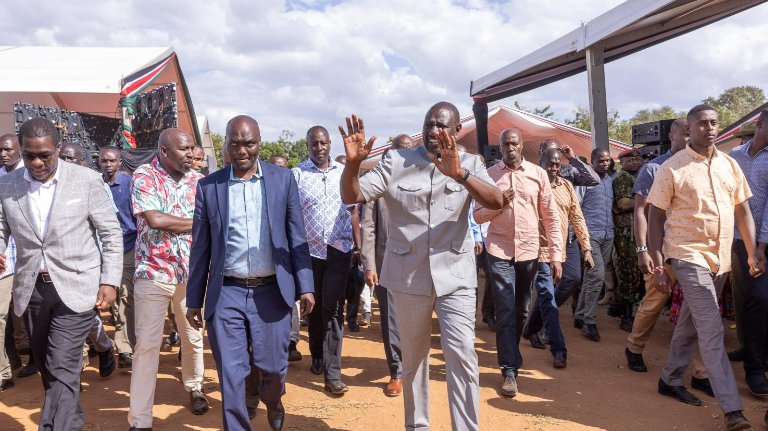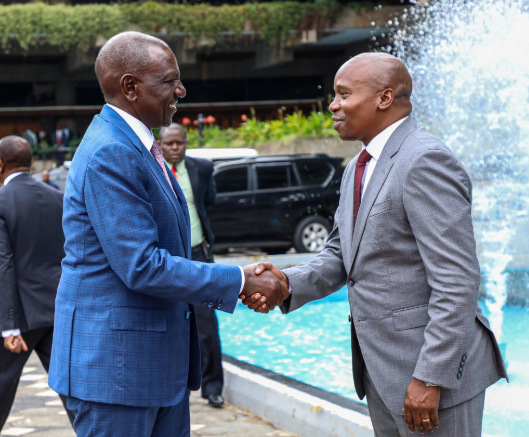AG and Haji clash over mandate to extradite Okemo, Gichuru
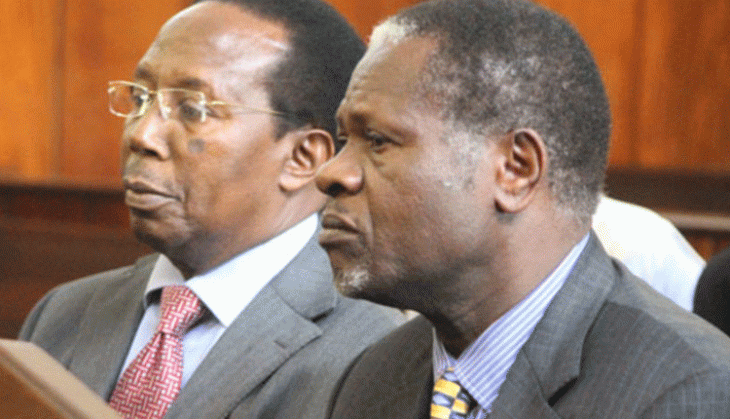
The Attorney General’s office and the Director of Public Prosecutions (DPP) Noordin Haji yesterday differed over who had the powers to handle the extradition of former Energy Minister Chris Okemo and former Kenya Power boss Samuel Gichuru.
During the hearing of an appeal filed at the Supreme Court yesterday, both offices argued they have the powers to deal with the matter.
Special Prosecutor Taib Ali Taib told the Supreme Court judges led by Chief Justice Martha Koome that extradition proceedings are criminal in nature and therefore fall within the DPP’s, not the AG’s, office.
“Extradition proceedings are criminal in nature. The Attorney General has no role to play. He cannot initiate.
We ask you to set aside the orders issued by the Appellate court in September 2018 and allow our petition,” he said.
In the appeal, the Supreme Court judges are expected to determine who between the two offices has the legal authority to commence extradition proceedings in court.
This is after the DPP moved to the Apex court to challenge the Court of Appeal’s decision to quash the extradition of Okemo and Gichuru in March 2018 on grounds that it had wrongly been initiated by the public prosecutor.
But the AG, through Emanmanuel Bitta, informed the top court that the constitution confers functions of foreign relations upon the Executive in which his office is part of.
Lawyers Waweru Gatonye and Fred Ngatia acting for Gichuru and Okemo respectively supported the argument by the AG saying it is part of the national executive and is competent to handle extradition proceedings.
“The ultimate decision to surrender or not to surrender is vested in the Attorney General,” said Gatonye.
The court heard that On June 6, 2011, the AG received, on behalf of the Government of Kenya through the British High Commission, Nairobi, a request of the extradition of Gichuru and Okemo to the UK on behalf of the Attorney General of Jersey.
The then AG Amos Wako later handed over the extradition request to the DPP’s office which was then a department in the State Law Office.
The ODPP after due consideration issued an “Authority to Proceed” dated July 6, 2011 to the Chief Magistrate pursuant to section 7(1) of the Extradition Act.
The DPP filed a miscellaneous application at the chief magistrate court where he sought a warrant of arrest against the two fugitives.
Yesterday, the Supreme court termed it as “absurd” that the two offices could not agree on whose mandate it is yet was not a problem before.
In response, Taib said; “Prior to all this there was no doubt in AG’s mind that the power lied with us.
For all those ten years, it has been the DPP who has been executing that mandate.”
